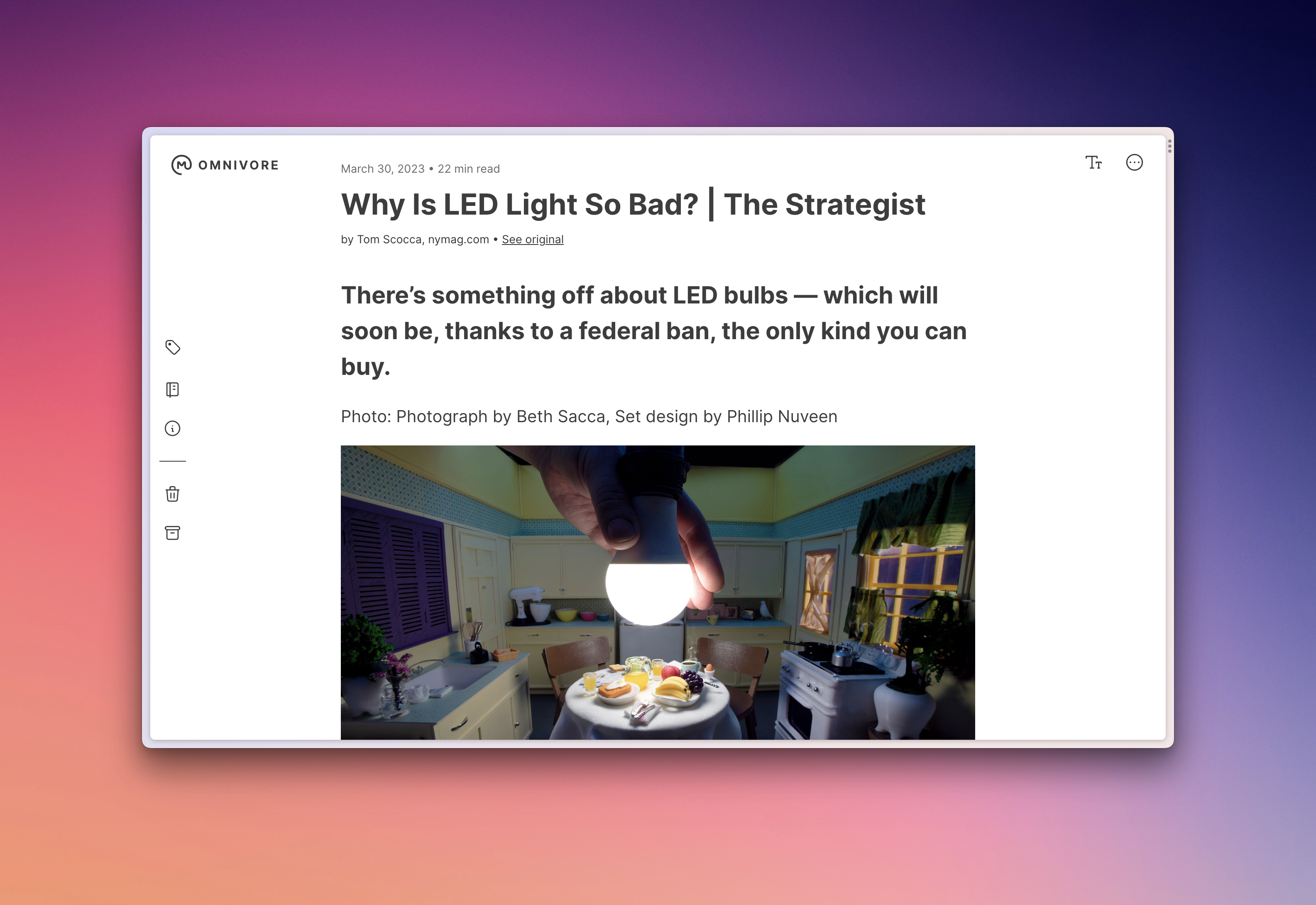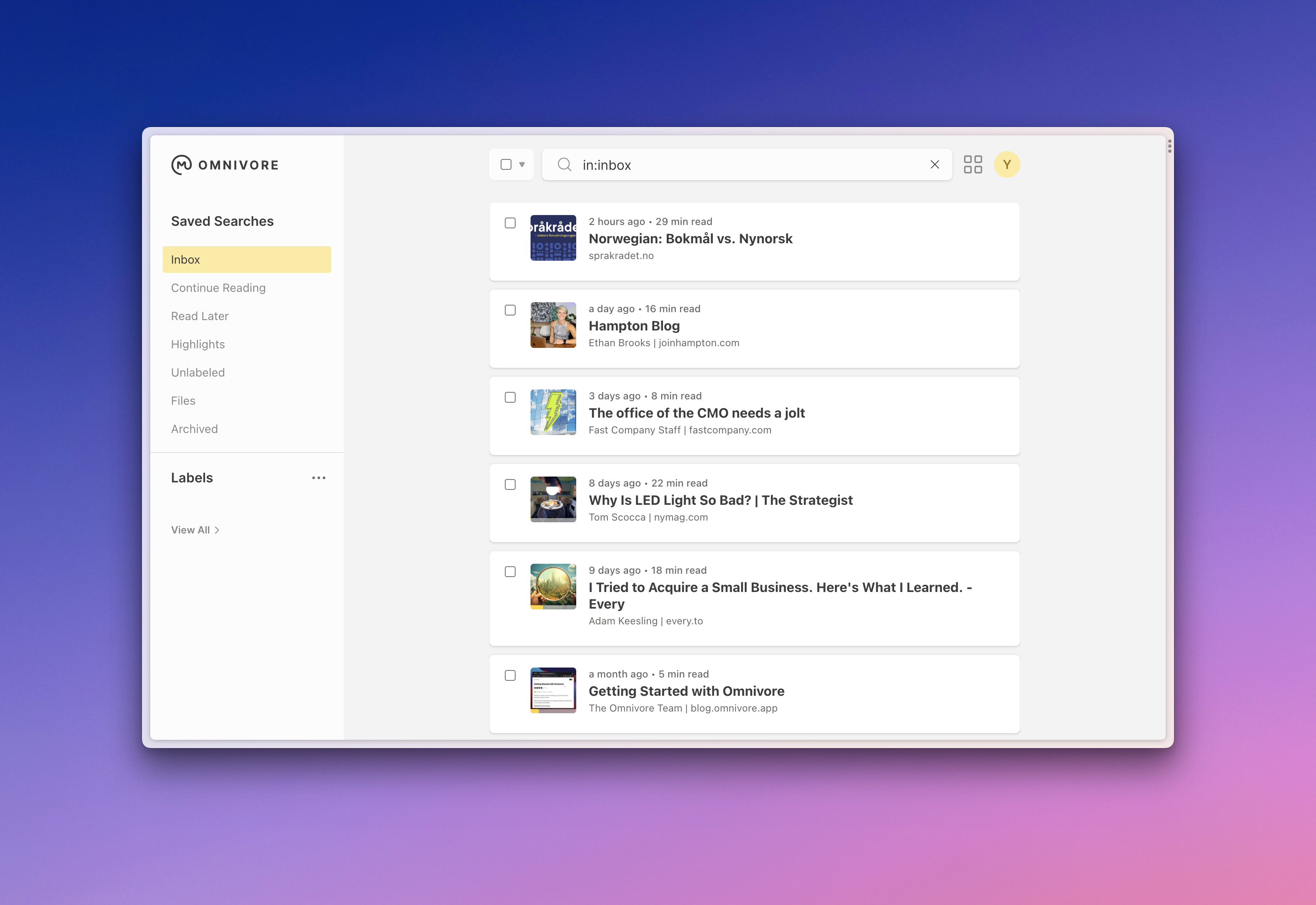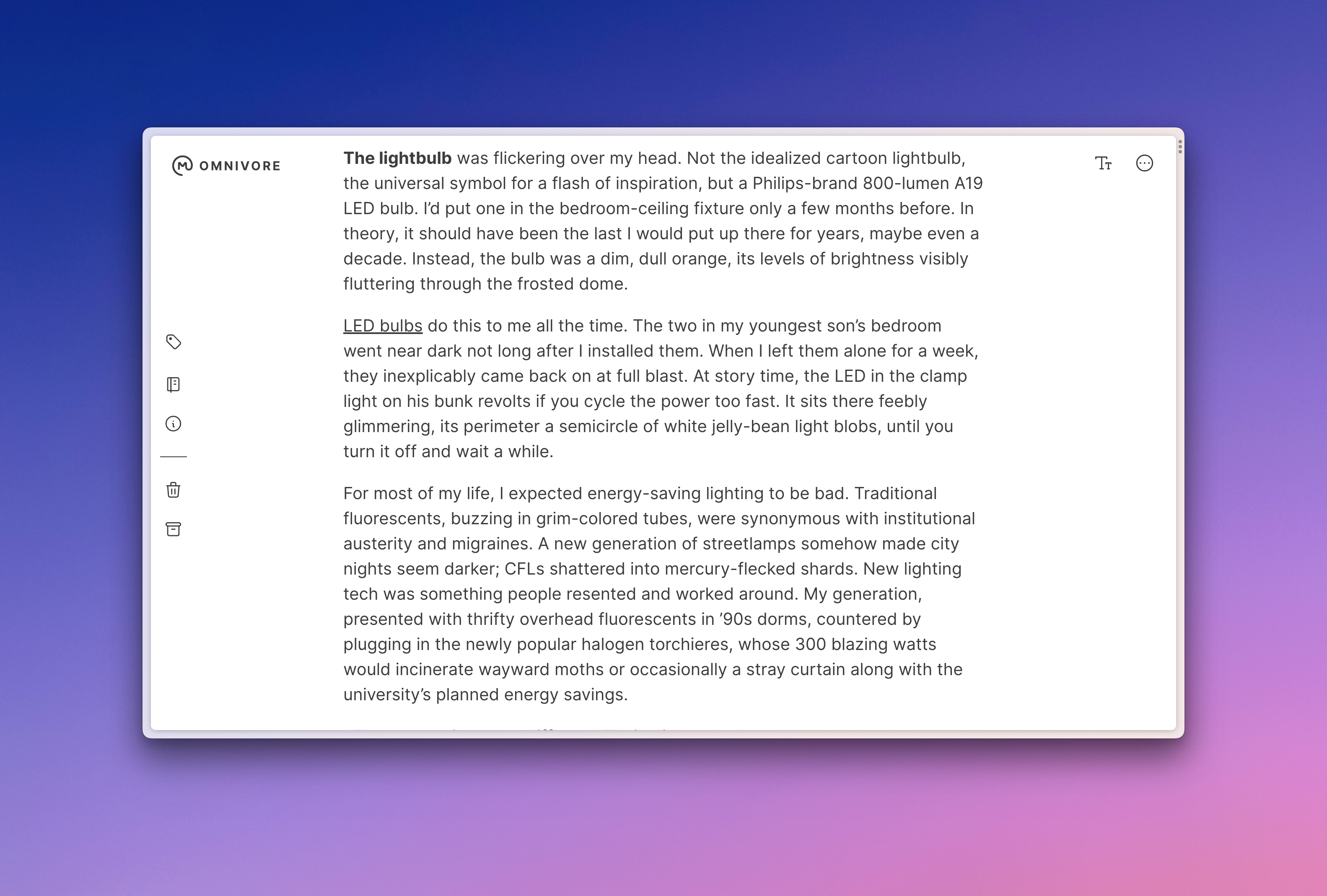Omnivore Review: An Underrated Read-Later App
I sometimes see people using Pocket, Instapaper, or Safari’s Reading List even though all of them have been practically abandoned and the first two definitely don’t deserve a subscription. I reviewed Readwise Reader and Matter earlier, but they only work properly if you pay. It’s not for everyone, so I wanted to tell you about Omnivore, a rapidly-developed read-later app.

Omnivore is an open-source read-later app. And that’s the first thing that differentiates it. Of course, consumers don’t really care when things are open source, but this potentially allows other developers to fork it if the original team abandons the app (which seems to be a running theme in this space).
Omnivore was launched in 2021, and despite this I’ve only seen maybe a few reviews of it, and almost zero mention on top tech blogs. Which is weird, because it’s a good app.
Its design is reminiscent of Pocket, but it’s much friendlier.
Omnivore does all the expected things and then some. It has a Progressive Web App (PWA) you can install through Chrome-like browsers on your desktop. And it has competent mobile apps. It also has browser extensions for everything from Safari and Firefox to Chrome, Edge, and Arc you use to save the currently opened page for later.
You can tag saved pages with labels and Omnivore has a pretty advanced search tool, which even allows you to save certain queries to reuse them later. And of course you have highlights, which I find incredibly important for a read-later app.
While reading things is nice and useful, it’s unlikely you will go into this heap of old stories to freshen up your memory. So I use highlights to save the most important bits and then put them somewhere. Readwise is an app lots of people use, but there are other, more custom options.
Omnivore doesn’t yet have an integration with Readwise. But it syncs with Obsidian and Logseq. And there’s an API developers can tap into to build custom integrations. Many people use Obsidian or other apps like this as their knowledge platform and Omnivore should work nicely with it.

Omnivore also allows you to read email newsletters right in the app. There are several ways to do this. It gives you a custom email address, and you can either forward all emails from certain addresses (like Substack to it), or do it manually when you go through your inbox.
There’s a beta feature called “Rules” which allows you to build complex workflow to categorize incoming stories that should work well with email subscriptions specifically.
Now, the most important aspect of a read-later app is its reading experience’s quality. And I’d say it’s quite great.

The parser is very capable. It does make mistakes when scraping a webpage sometimes, but fortunately, all that I’ve seen were about excessive content, like a doubled intro or a cover image. While this might be annoying, it’s much better than losing content. Overall, the scraper is probably not as good as the ones you can find in Reader or Matter.
In addition to articles, you can save entire Twitter threads and PDFs, so everything is stored in one place regardless of its source. And if you’re on the go, you can listen to saved pages using text-to-speech, which I found to be OK (but I don’t use such feature too often, so I might not know what’s the ceiling here).

You can get all these things in Matter, which is also quite minimal. But the free version of Matter is way too limited. And you can’t access Readwise Reader at all if you don’t pay. It also looks way more complex, which might not be your thing – I seem to like it, but even I myself sometimes want something more serene. And Reader does feel like work.
Right now, Omnivore is free. The team relies on donations from its users and plans to implement paid features down the road. In their statements, they say that none of the current features will be paywalled. Which is good for users, although I’m wondering whether this will allow them to convert enough people into paying customer down the road – the core functionality seems more than sufficient for most. At least they aren’t venture-backed, so there’s no pressure for rapid growth, but I hope they will Omnivore this into a stable thriving business.
Updated on Oct 31, 2024
Omnivore has been shut down. I recommend switching to Readwise Reader.




